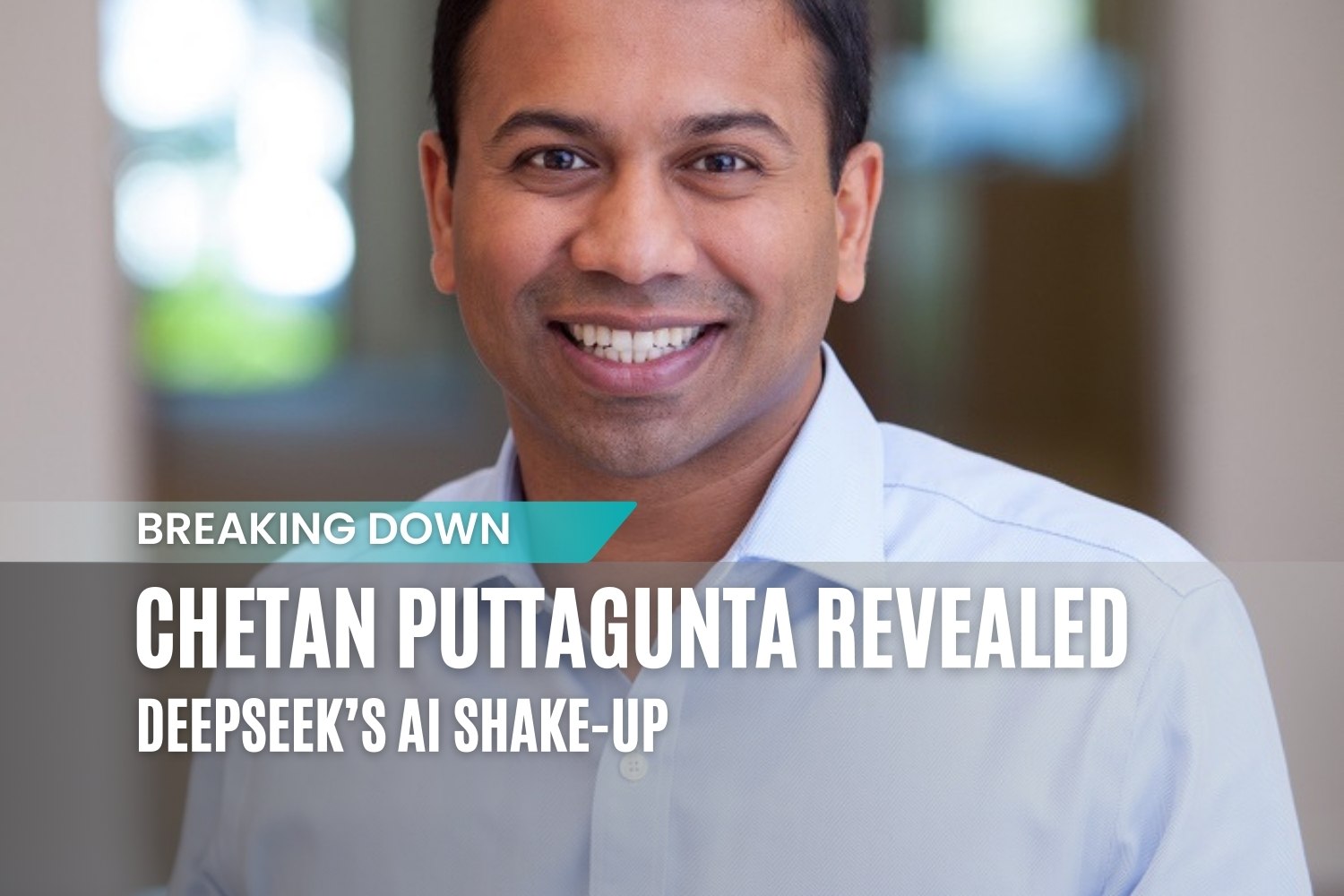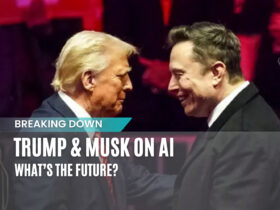DeepSeek’s AI Shake-Up: What Chetan Puttagunta Revealed

Some interviews confirm what we already know. Others challenge everything we thought was certain. This one? It was the latter.
Tuning into Benchmark partner Chetan Puttagunta’s insights on DeepSeek was like watching a long-held belief crumble in real-time. For years, Silicon Valley has dictated the rules of AI development, pushing the idea that innovation requires billions in funding, the most powerful chips, and massive data centers. DeepSeek just shattered that illusion.
This isn’t just about a new AI competitor. It’s about a shift in power—one that puts the U.S. on notice and forces the entire AI industry to rethink what’s possible.
The biggest takeaway from this conversation?
DeepSeek’s rise signals a reckoning for Silicon Valley. The old rules no longer apply.
China’s DeepSeek Is Changing the AI Game—Faster Than Expected
For years, we’ve assumed the U.S. had a commanding lead in AI. OpenAI, Google, and Meta have built the most advanced models, raising billions in funding while using the best hardware money can buy.
Then came DeepSeek—a company few in the West had heard of. And suddenly, the entire industry was paying attention.
“People assumed China was way behind in AI research,” Puttagunta said. “But if you actually track the advancements happening, you’ll see China is rapidly closing the gap.”
That gap is closing faster than expected. DeepSeek’s model isn’t just competitive—it’s efficient, delivering results at a fraction of the cost. Reuters reported that Nvidia’s stock dropped 17% after DeepSeek’s announcement—a sign of how disruptive this breakthrough is.
For Silicon Valley? This is a wake-up call.
“Efficiency Beats Raw Power” – The Secret Behind DeepSeek’s AI
DeepSeek didn’t just match ChatGPT-3.5—it did so with far fewer resources.
“They’re working with constraints, yet achieving results that rival companies spending ten times more,” Puttagunta explained.
How? Algorithmic efficiency.
Rather than relying on brute-force computing, DeepSeek used a Mixture of Experts (MoE) model—a technique that only activates specific parts of the AI model based on the task. This makes their AI faster, cheaper, and less reliant on high-end chips.
The takeaway? The AI race is no longer about who has the most money—it’s about who builds the smartest models.
And that should terrify Silicon Valley.
Silicon Valley’s Monopoly? It Might Be Over.
For years, the AI space has been dominated by a handful of U.S. tech giants—OpenAI, Google, and Microsoft.
DeepSeek’s rise challenges that dominance. And Silicon Valley knows it.
“This isn’t just about one company,” Puttagunta noted. “DeepSeek’s open-source model means that AI isn’t just controlled by a few big players anymore. That’s a major change.”
Why does open-source AI matter? Because now anyone, anywhere, can use DeepSeek’s technology—lowering barriers for startups, universities, and independent researchers to compete.
This could redefine the AI landscape. The era of billion-dollar AI models might soon be over.
The Big Unknowns: What We Still Don’t Know About DeepSeek
For all of DeepSeek’s breakthroughs, major questions remain.
- Who exactly is backing DeepSeek?
- Where did they get their training data?
- Can they sustain this momentum, or is this a one-time breakthrough?
“The lack of transparency is what makes people cautious,” Puttagunta admitted. “In the U.S., AI research is subject to intense scrutiny. With DeepSeek, there are still a lot of unknowns.”
Transparency matters. While DeepSeek’s open-source release is a step in the right direction, the long-term implications remain uncertain. And in an industry where trust is everything, those uncertainties matter.
Final Take: The AI Race Just Got a Lot More Interesting
After listening to Puttagunta’s insights, one thing is crystal clear—DeepSeek’s success isn’t an isolated event. It’s the beginning of something much bigger.
Key Takeaways from the Interview
- China is closing the AI gap—fast.
- DeepSeek built a ChatGPT competitor for a fraction of the cost.
- Silicon Valley must rethink its AI spending.
- The open-source movement is challenging tech monopolies.
- The AI race is shifting—and it’s no longer just a U.S. game.
So what does this mean for Silicon Valley’s future? If DeepSeek can do this for $6 million, how long will investors keep pouring billions into AI startups that might not be as efficient?
💡 The old AI playbook is dead. The next question is—who will adapt the fastest?
Final Thoughts & Source Credits
This blog is a personal reflection on Benchmark’s conversation with Chetan Puttagunta. Additional insights and references are sourced from Reuters, Al Jazeera’s The Take podcast, and industry reports.
The AI industry is moving faster than ever—and DeepSeek just proved that the rules are changing.
Now the real question is: who’s ready for what comes next?

























Leave a Review